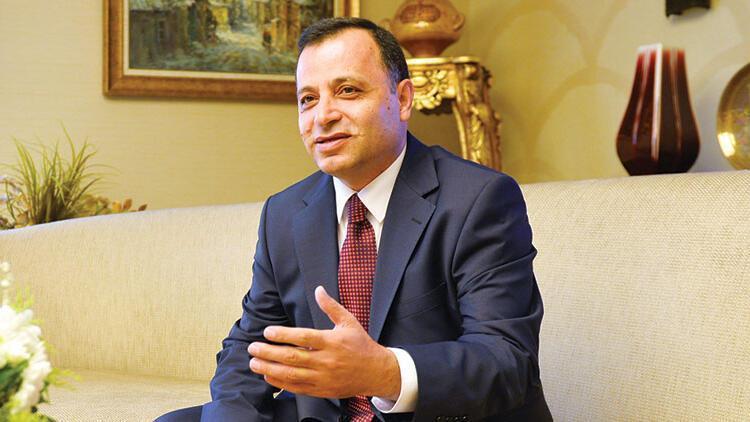Turkey’s top judge urges merit to fight against infiltrations into state
Oya Armutçu – ANKARA

Policies that take shape with qualification, merit and loyalty to the state and the nation are a must to fight against organizations such as FETÖ, Turkey’s top judge has said.
“The most difficult thing in the fight against FETÖ-type organizations is to prevent them from reproducing themselves. For this, multifaceted policies should be resolutely determined and implemented,” Zühtü Arslan, the head of Turkey’s Constitutional Court, told daily Hürriyet.
“Undoubtedly, the most important issue is education,” he added.
The best way to fight against organizations such as FETÖ is to have individuals in the society who are free and in their right mind, who can question and object, according to the top judge.
“In a society of such individuals, FETÖ-type organizations will not exist that easily,” he said.
“Our experiences at this point showed us once again how important the state’s attitude towards religion is. Undoubtedly, the state will guarantee freedom of religion and conscience in all its necessities. However, no group should be allowed to attempt to take over public institutions on behalf of religion or any ideology,” he added.
In order to prevent this from happening, state policies based on merit, qualification and societal diversity are crucial, Arslan stressed.
“For a society, law is as vital as the air we breathe. Where there is no law, neither state nor civilization will exist. Of course, judges can make mistakes and their decisions are not sacred,” Arslan said.
He also underlined that judges “can and should be criticized” yet in doing so, one should not go too far.
“Going overboard and discrediting courts and judges will harm the law and the justice it serves. This will do no good to the society,” he added.
Top court’s rulings more liberal than most democracies
Turkey’s top court has more liberal rulings, when compared with many democratic countries, according to Arslan, yet some circles still make biased evaluations, with or without conscious.
“Extraordinary things happened in this country in the last seven years. The Constitutional Court has made very critical decisions, some of which were strongly criticized. For a constitutional judge, being in limbo is inevitable. Actually, this shows that you are in the right direction,” Arslan said.
“Some circles are in a persistent bid to show individual applications to the Constitutional Court as ineffective,” he said. He also added that the European Court of Human Rights (ECHR) acknowledges these individual applications as efficient.
Implementing individual applications is a “revolutionary” development, according to the top judge, but there is still room for improvement.
“Indeed, the individual application is a revolutionary development. But, we see that some legal alterations are needed, after seven years of practice,” he said.
Arslan added that “constitutional importance” should be adopted in Turkey as it will pave the way for the Constitutional Court to reject applications on topics that were previously resolved and will allow the court to spend more time on applications with constitutional importance.
There are three main issues in the judiciary, according to Arslan. “The three main issues in the judiciary that I can see are workload, qualification and providing a safe environment for our judges and prosecutors.”
These problems, however, do not require legal amendments, but rather “correction of the practice.”
The top judge also stressed that the proclamation of Ethics of Turkish Jurisdiction is a favorable development.
















